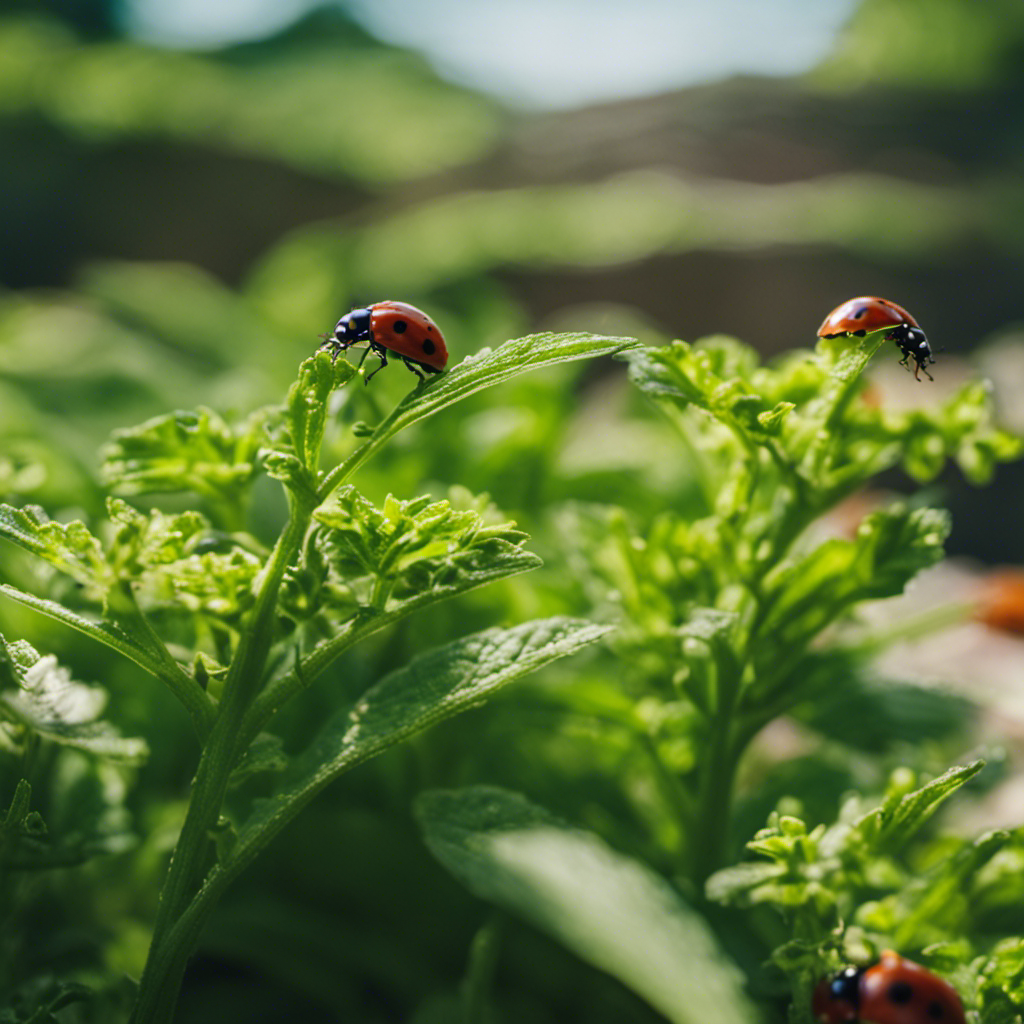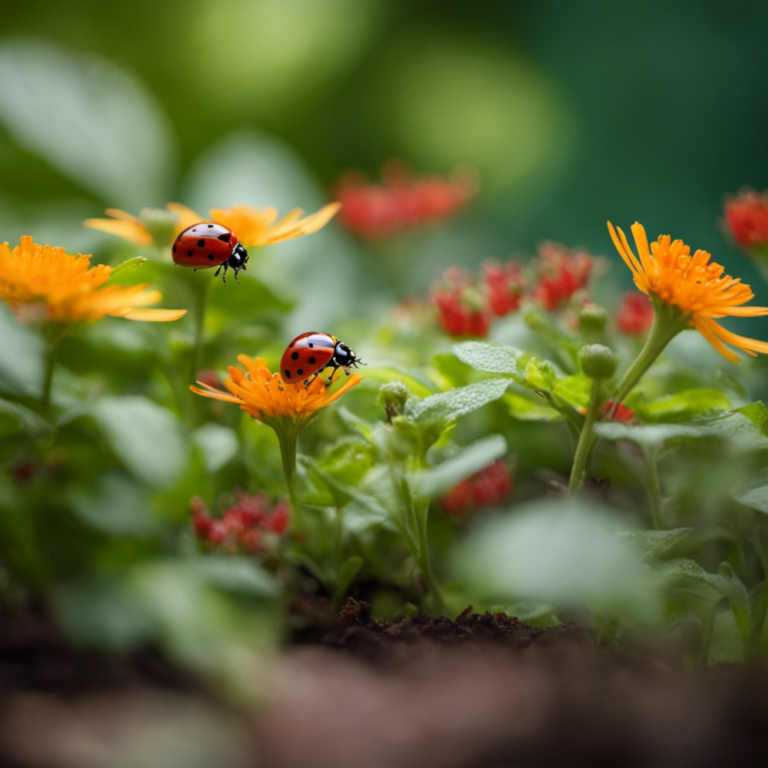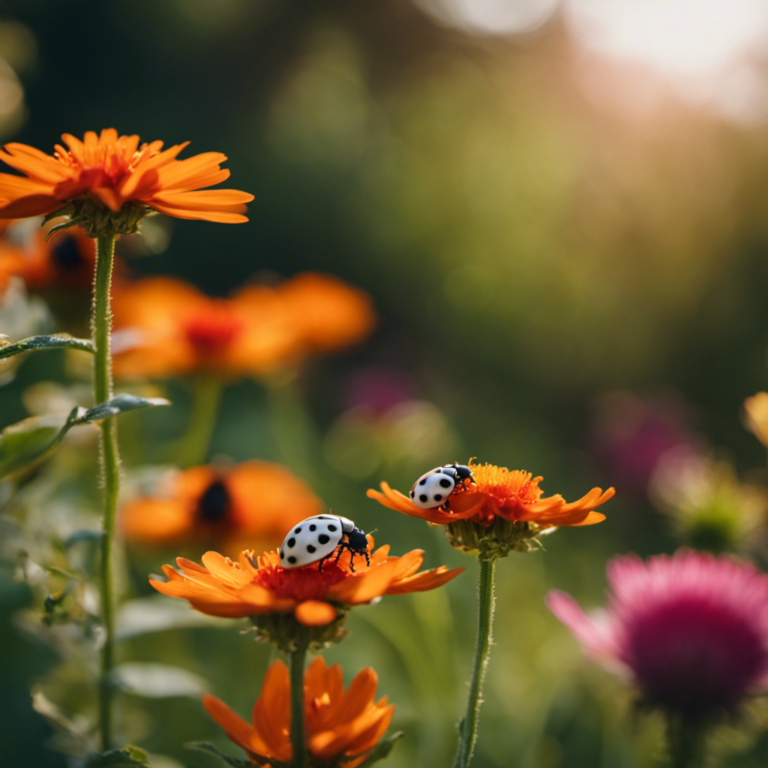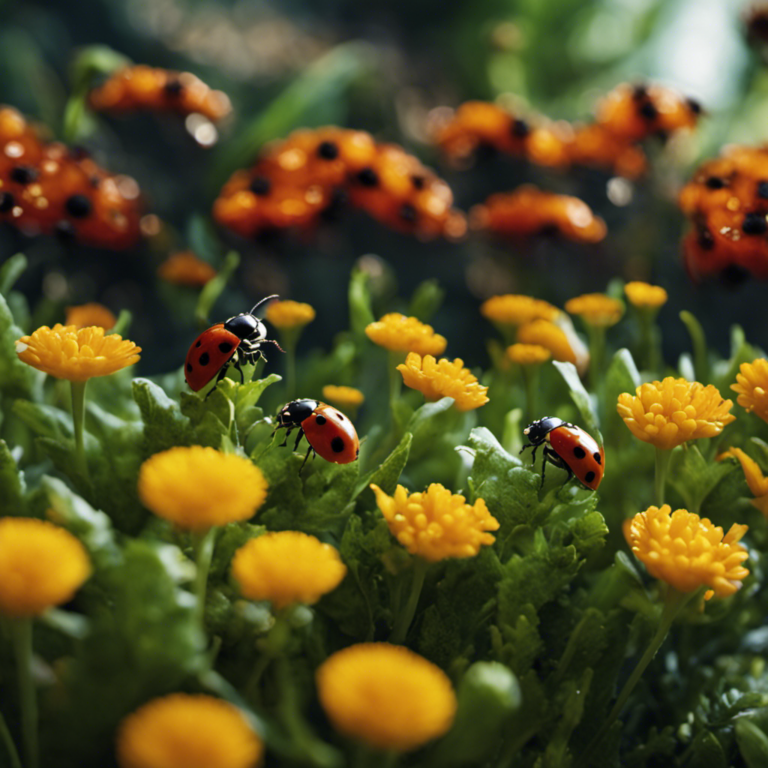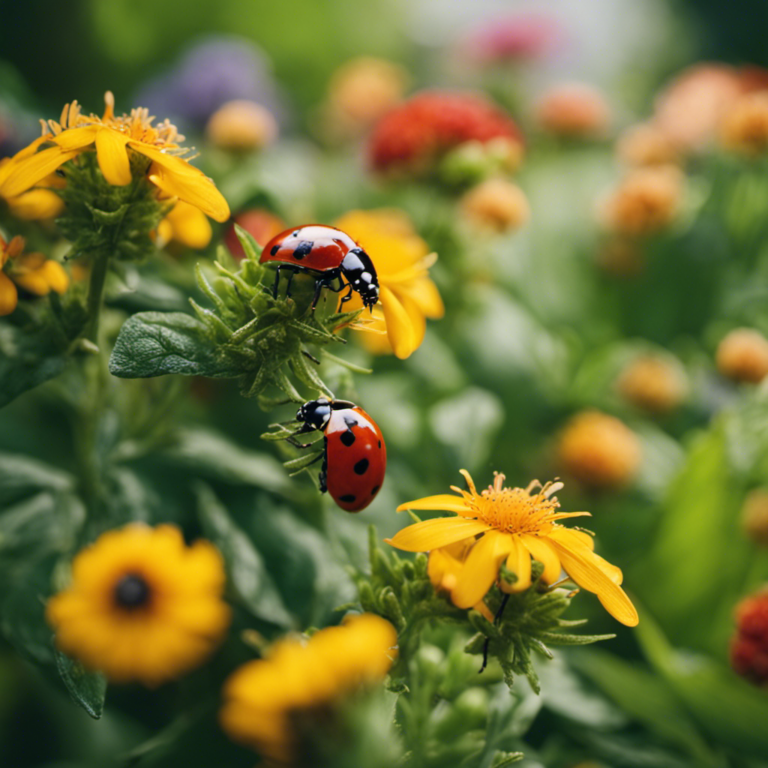Are pests causing problems in your herb garden? Don’t worry, you’re not alone. Did you know that more than 80% of herb gardens are plagued by unwanted visitors? But fear not, because with the right knowledge and do-it-yourself tactics, you can become an expert in organic pest control.
In this article, we will provide you with the necessary tools, natural methods, homemade repellents, and companion planting strategies to ensure the health and pest-free environment of your herb garden.
Get ready to take control of your garden and nurture your herbs with care.
Key Takeaways
Mastering organic pest control for herb gardens is essential for maintaining a healthy and thriving garden. By using natural pest control methods, homemade repellents, and companion planting strategies, gardeners can effectively protect their herbs without resorting to harmful chemicals.
According to a study conducted by the University of California, companion planting has been shown to reduce pest populations by up to 50%. This statistic emphasizes the effectiveness of organic pest control techniques and highlights the importance of environmentally-conscious gardening practices. By implementing these strategies, gardeners can create a balanced ecosystem that not only wards off pests but also promotes the overall health and vitality of their herb gardens.
Essential Tools for Organic Pest Control
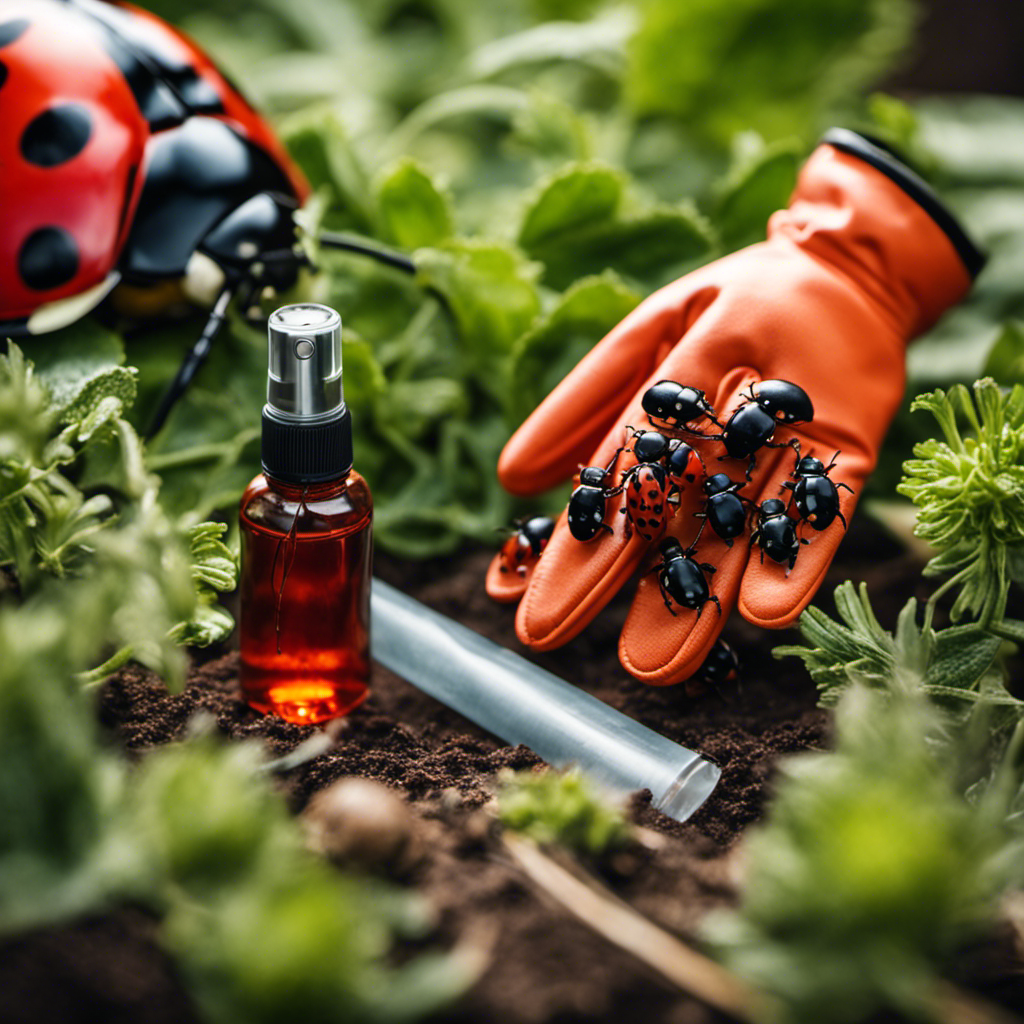
Essential Tools for Organic Pest Control
Controlling pests in your herb garden requires a few essential tools. Organic pest control has its own benefits and challenges, so it’s important to choose the right tools to maintain a healthy and thriving garden.
One tool that’s crucial for organic pest control is a hand-held sprayer. This allows you to directly apply organic pesticides and natural insecticides to the affected plants, targeting the pests without harming beneficial insects.
Another essential tool is a pair of gardening gloves, which not only protect your hands but also help you manually remove pests like slugs and caterpillars.
To identify pests and their eggs, a magnifying glass can be quite useful, enabling you to take appropriate action.
Lastly, having a gardening knife or shears on hand can be handy for pruning infected leaves or stems.
Natural Pest Control Methods for Herb Gardens
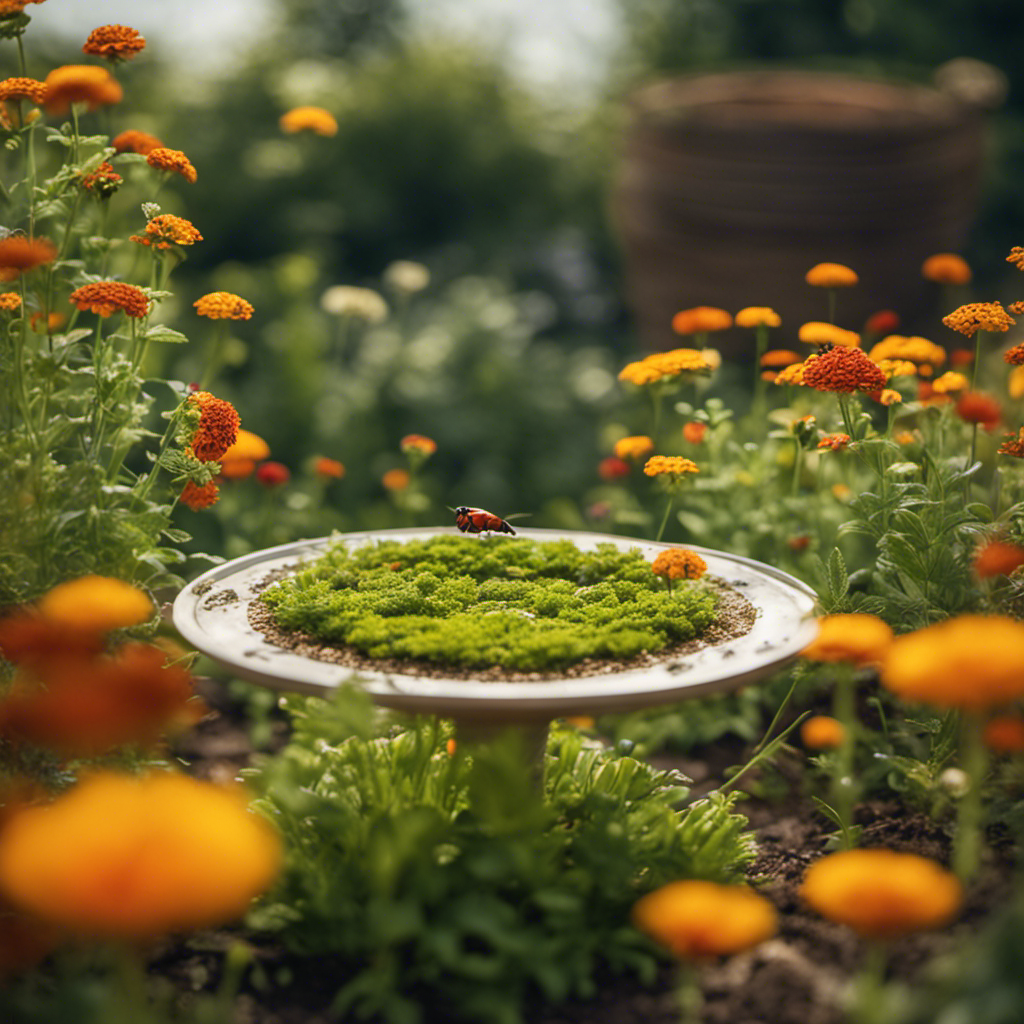
Natural Pest Control Methods for Herb Gardens
Beneficial insects are a great way to naturally control pests in your herb garden. These insects, such as ladybugs, lacewings, and praying mantises, help to keep common herb garden pests like aphids, mites, and caterpillars in check. By introducing these helpful insects into your garden, you can effectively manage pest populations without using harmful chemicals.
Another natural method for pest control in herb gardens is the use of organic pest control products. These products, made from natural ingredients like neem oil, garlic, or soap, are safe for both plants and beneficial insects. Simply spraying them directly onto your plants can deter and control pests. When using organic pest control products, be sure to carefully read and follow the instructions for proper application and effectiveness.
Homemade Pest Repellents for Organic Gardening
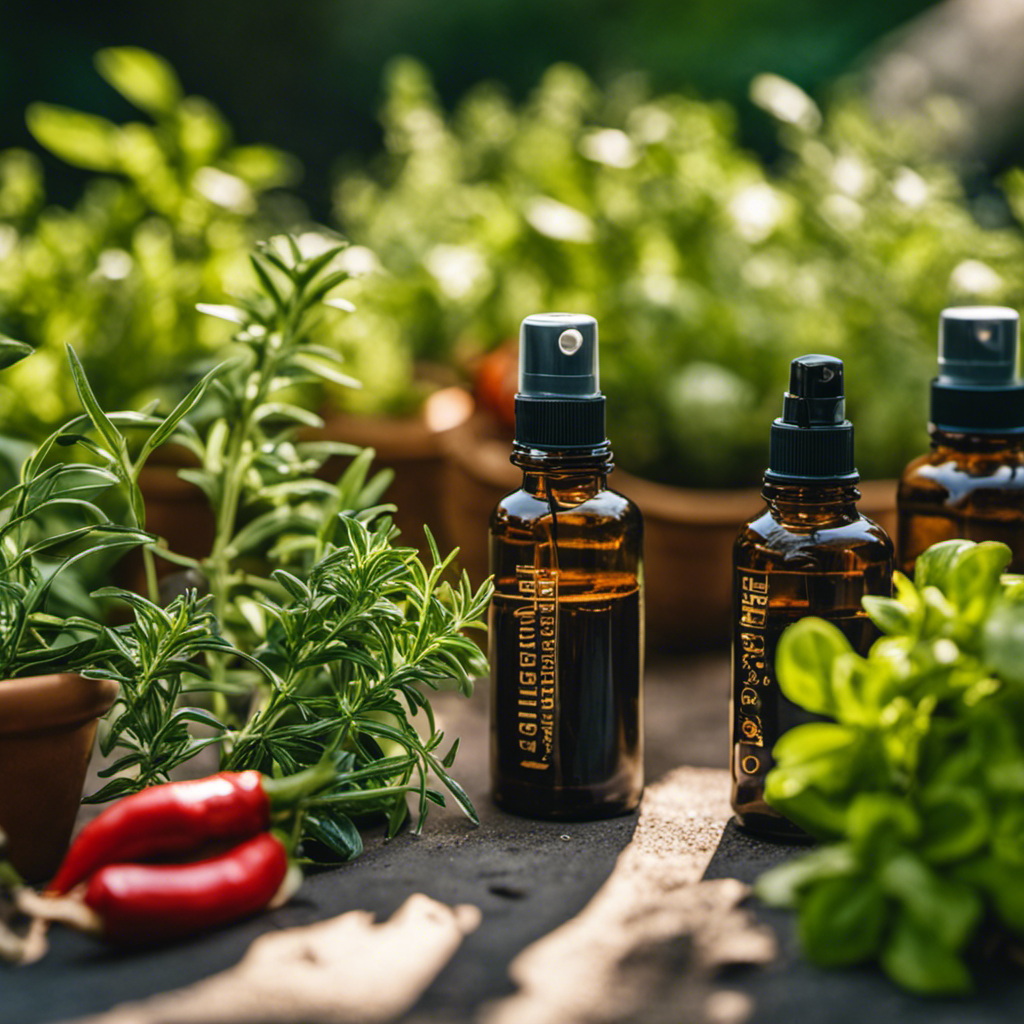
Creating homemade pest repellents for organic gardening is a simple and effective way to protect your herb garden from pests. By using natural ingredients and easy do-it-yourself techniques, you can keep your plants safe without relying on harmful chemicals. Here are five homemade pest deterrents and insecticides that you can easily make at home:
-
Neem oil spray: Make a mixture of neem oil, water, and a few drops of liquid soap. Spray this solution on your plants to repel a variety of pests such as aphids, whiteflies, and spider mites.
-
Garlic and chili pepper spray: Blend garlic cloves and chili peppers with water. Let the mixture steep overnight, strain it, and then spray it on your plants. This powerful mixture acts as a deterrent for insects and critters like rabbits and deer.
-
Essential oil repellents: Dilute essential oils like peppermint, lavender, or eucalyptus with water and spray them around your herb garden. These oils not only repel pests but also add a pleasant scent to your garden.
-
Soap spray: Mix liquid soap with water and spray it on your plants. The soap suffocates soft-bodied insects such as aphids and mealybugs.
-
Coffee grounds: Sprinkle used coffee grounds around your herb garden to repel slugs and snails. These pests dislike the texture and smell of coffee grounds.
With these homemade pest repellents, you can maintain a healthy and pest-free herb garden. It’s a natural and eco-friendly approach that keeps your plants thriving while avoiding the use of harmful chemicals. As an added bonus, these DIY solutions are cost-effective and easy to make. So why not give them a try and see the positive impact they’ve on your organic garden?
Companion Planting Strategies for Pest Control
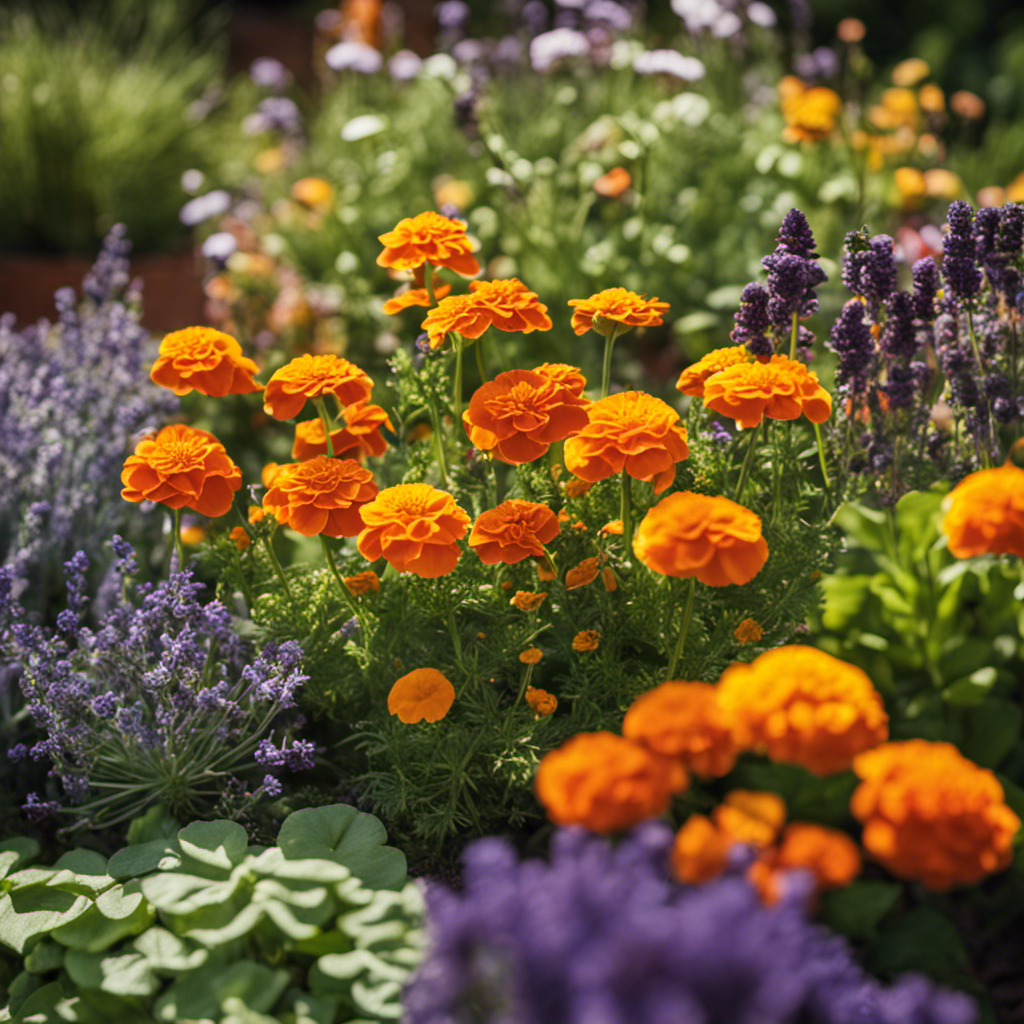
Incorporating companion planting strategies into your herb garden is an effective way to naturally control pests. By strategically planting certain herbs and flowers alongside your herbs, you can attract beneficial insects that help keep pests in check. Additionally, implementing crop rotation techniques can further enhance your pest control efforts.
Here are some examples of companion planting combinations that can aid in pest control:
- Marigold: Attracts ladybugs and hoverflies, which repel aphids.
- Basil: Attracts bees and butterflies, which help control tomato hornworm.
- Nasturtium: Attracts bees and hoverflies, which repel cabbage worms.
- Dill: Attracts ladybugs and lacewings, which control aphids.
Crop rotation is another important strategy in organic pest control. By rotating your herb crops each year, you can disrupt the life cycles of pests and reduce their populations. This method also helps prevent the buildup of soil-borne diseases. For example, you can rotate your basil with another herb, such as thyme or rosemary, to deter pests specific to basil.
Incorporating these companion planting and crop rotation strategies into your herb garden won’t only naturally control pests but also create a diverse and balanced ecosystem.
Organic Pest Control Techniques for Herb Gardens
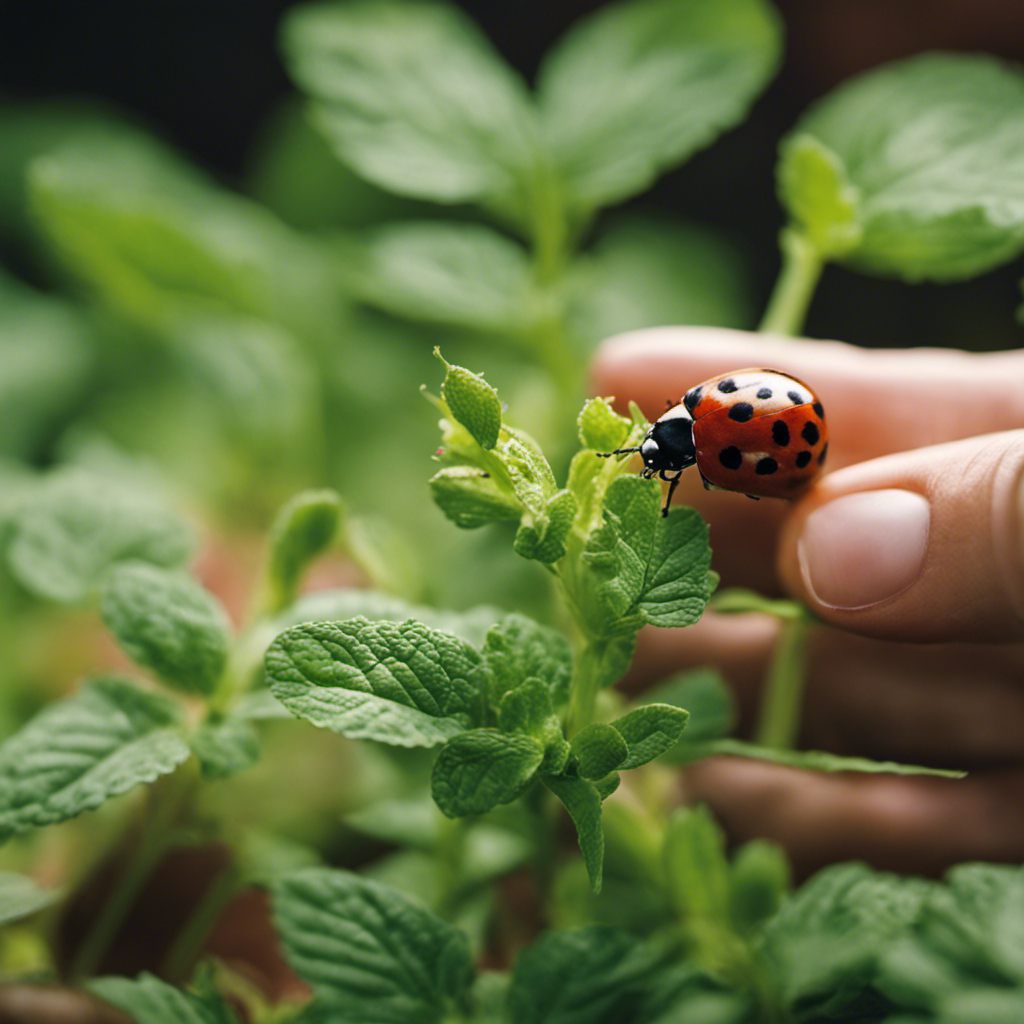
Effective Organic Pest Control Techniques for Herb Gardens
When it comes to controlling pests in your herb garden using organic methods, there are simple techniques you can implement. These techniques aren’t only environmentally-friendly but also effective in keeping pests at bay.
Encourage Beneficial Insects: Ladybugs, lacewings, and praying mantises are beneficial insects that feed on garden pests. To attract these helpful bugs, consider planting flowers like marigolds and daisies in your herb garden.
Use Organic Pest Control Products: There are several organic pest control products available for herb gardens, such as neem oil, insecticidal soap, and diatomaceous earth. These products effectively control common pests while ensuring the safety of beneficial insects.
Practice Good Hygiene: Regularly removing dead leaves and debris from your herb garden is crucial as they can harbor pests. Additionally, rotating your herb plants annually helps prevent the buildup of pest populations.
Create Physical Barriers: Protect your herb plants from pests like aphids and caterpillars by using row covers or netting. These barriers act as shields, preventing pests from damaging your plants.
Companion Planting: Planting certain herbs together can deter pests. For example, planting basil near tomatoes can repel tomato hornworms. This natural method reduces the need for chemical interventions.
Conclusion
Mastering organic pest control for herb gardens is crucial for maintaining a healthy and thriving garden. By using natural pest control methods, homemade repellents, and companion planting strategies, gardeners can effectively protect their herbs without resorting to harmful chemicals.
According to a study by the University of California, companion planting can reduce pest populations by up to 50%. This statistic highlights the effectiveness of organic pest control techniques and the importance of environmentally-conscious gardening practices.
